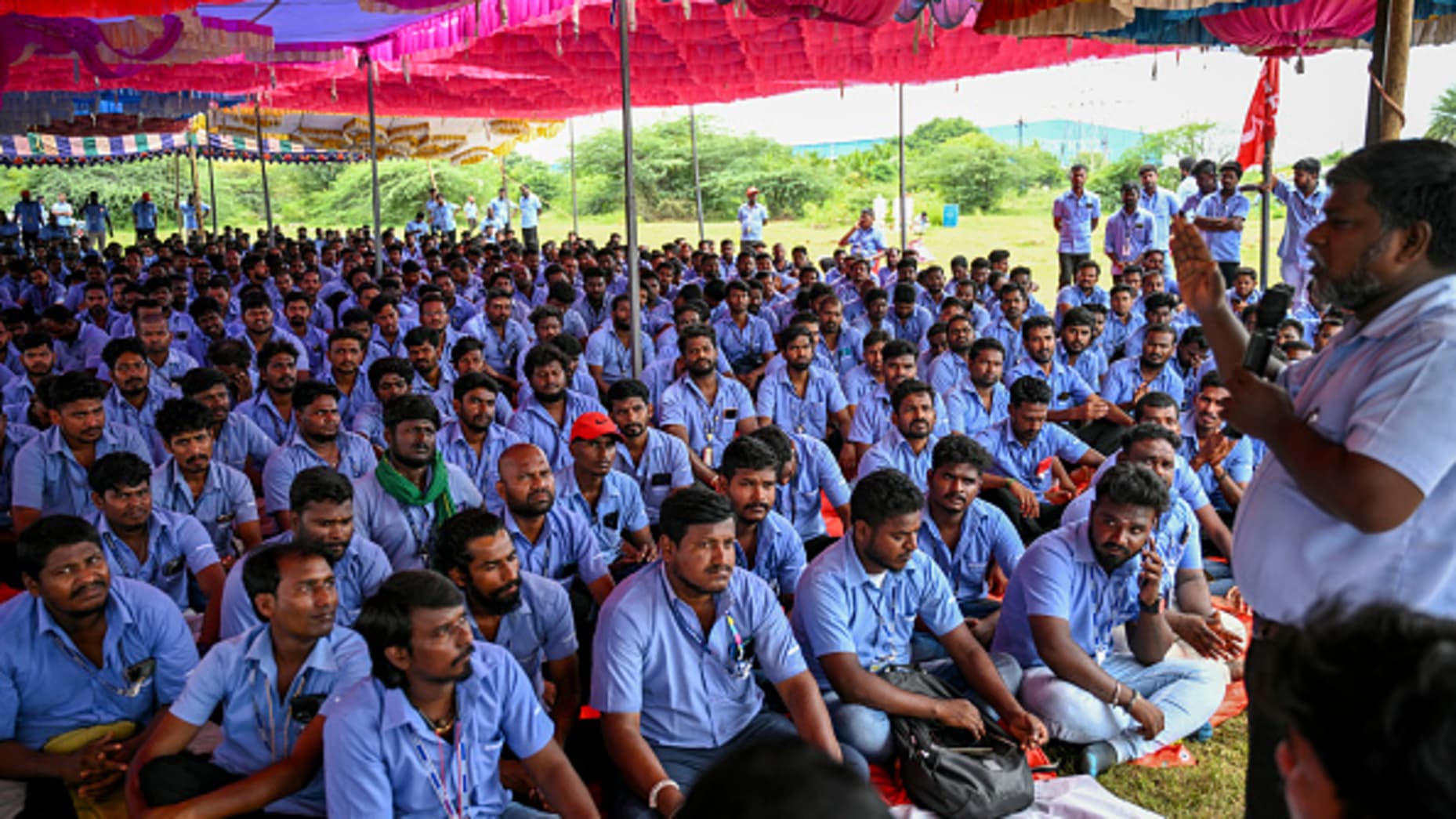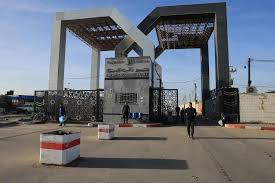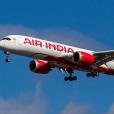Business
Samsung India Workers End Month-Long Strike Following Agreement on Key Demands

After more than a month of protests, workers at Samsung Electronics’ factory in Tamil Nadu, India, have called off their strike. Around 1,500 workers at the Chennai plant had participated in the strike, pressing for better wages, improved working conditions, and recognition of their newly-formed union, the Samsung India Labour Welfare Union (SILWU).
While Samsung has not yet formally recognized the union, the company has agreed to engage with workers on other demands, including wage increases, medical insurance, and better facilities. The strike, one of the largest faced by the South Korean tech giant in recent years, posed potential challenges to India’s efforts to position itself as a leading alternative to China for manufacturing.
The decision to end the strike followed a meeting between the workers, represented by the Centre of Indian Trade Unions (CITU), and Tamil Nadu labor officials. E. Muthukumar, a labor activist, confirmed that workers would resume their jobs immediately, with the issue of union registration to be decided in court.
Tamil Nadu’s Minister for Industries, TRB Rajaa, assured that Samsung would not retaliate against workers who participated in the strike. Samsung echoed this sentiment, stating that it welcomed the resolution and would continue working closely with its employees to improve the factory’s working environment.
Business
Trump Says Venezuela Will Hand Over Up to 50 Million Barrels of Oil to US After Political Transition

US President Donald Trump has announced that Venezuela will “turn over” between 30 million and 50 million barrels of oil to the United States, following a military operation that removed President Nicolás Maduro from power and ushered in an interim administration in Caracas.
In a statement posted on his Truth Social platform on Tuesday, Trump said the oil — valued at about $2.8bn (£2.1bn) at current market prices — would be sold at full market value, with the proceeds placed under US control. He added that the funds would be used to benefit both the Venezuelan people and the United States.
“I am pleased to announce that the Interim Authorities in Venezuela will be turning over between 30 and 50 MILLION barrels of high-quality, sanctioned oil to the United States of America,” Trump wrote. “This oil will be sold at its market price, and that money will be controlled by me, as President of the United States of America, to ensure it is used to benefit the people of Venezuela and the United States.”
The announcement came a day after Delcy Rodríguez, formerly Venezuela’s vice-president, was sworn in as interim president. Maduro has been transferred to the United States, where he is facing long-standing drug-trafficking and weapons-related charges.
Trump also said the move marked the beginning of a broader economic reset for Venezuela, predicting that the US oil industry would be fully operational in the country within the next 18 months. He added that he expected major international investments to flow into Venezuela as stability returns and sanctions are restructured under the new political arrangement.
“This is the start of something very big,” Trump said earlier this week, arguing that Venezuela’s vast energy resources could once again be developed at scale with international backing and modern infrastructure.
The proposed oil transfer has drawn strong reactions internationally. China, which has been Venezuela’s largest oil customer in recent years, criticised the announcement and objected to reports that the United States is seeking exclusive access to Venezuelan crude. Beijing said it opposed any arrangement that sidelines existing commercial partners.
Despite the criticism, US officials have framed the development as a pathway to economic recovery for Venezuela after years of sanctions, declining production and political isolation. Supporters of the plan say the controlled sale of oil could provide immediate financial relief while laying the groundwork for longer-term reforms.
Venezuela holds the world’s largest proven oil reserves, but output has been severely constrained in recent years due to underinvestment, infrastructure decay and international sanctions. Trump’s administration argues that renewed engagement with US energy firms and access to global markets could help restore production and stabilise the country’s economy.
Global oil markets reacted cautiously to the announcement, with prices easing slightly amid expectations of additional supply, though analysts noted that the volumes discussed remain modest relative to total global consumption.
Business
Gold price rises after US captures Venezuela’s Maduro

Global financial markets reacted swiftly after the United States captured Venezuelan President Nicolás Maduro, with investors moving to position themselves amid heightened geopolitical uncertainty and expectations of shifting economic dynamics.
Prices of precious metals rose sharply as market participants sought the relative safety of so-called safe-haven assets. Gold climbed by about 2.4% to $4,433 (£3,293) an ounce, reflecting increased demand from investors looking to protect portfolios against global risk. Silver also recorded strong gains, rising by 4.9%, underlining a broader move into defensive assets during early trading.
Defence stocks across Europe advanced in response to the weekend’s developments, as investors anticipated the possibility of higher military spending by governments reacting to changing geopolitical realities. Analysts noted that such shifts often benefit defence firms in the short to medium term, contributing to the positive momentum seen in the sector.
Oil markets, by contrast, were more measured. Crude prices fluctuated in early Monday trading as investors assessed whether Washington’s intervention in Venezuela could materially affect global supply. Brent crude edged up just 0.5% to $61.06 a barrel, with analysts pointing out that ample global supplies were likely to cushion any potential disruption from Venezuela.
Despite the relatively stable oil price, energy stocks — particularly in the United States — showed notable strength. Shares in US oil companies rose in premarket trading on expectations that American firms could gain greater access to Venezuela’s vast oil reserves. Chevron, currently the only US company operating in the country, saw its shares jump by more than 7%, signalling investor optimism about future opportunities.
US President Donald Trump has openly stated his intention to tap into Venezuela’s significant oil wealth following the seizure of Maduro. He said the United States would “run the country until such time as we can do a safe, proper and judicious transition”, comments that markets interpreted as a signal of potential policy shifts with long-term economic implications.
Business
US TikTok Users Migrate to RedNote as Ban Deadline Approaches

With a potential TikTok ban looming in the United States, many of the app’s 170 million American users are flocking to the Chinese platform RedNote. Dubbed “TikTok refugees,” these users have propelled RedNote to the top spot on Apple’s US App Store as of Monday.
RedNote, known in China as Xiaohongshu or “Little Red Book,” boasts approximately 300 million monthly users and combines features similar to TikTok and Instagram. It is particularly popular among young urban women in China, Taiwan, and other Mandarin-speaking regions, offering a platform for exchanging lifestyle tips on topics ranging from fashion to relationships.
The app’s growing popularity comes as the U.S. Supreme Court prepares to decide on a law requiring TikTok to sell its U.S. operations by January 19 or face a ban. TikTok has refused to sell, arguing that such a move would violate the free speech rights of its users.
RedNote has embraced its influx of U.S. users, with 63,000 posts tagged “TikTok refugee” providing guidance on navigating the platform and learning basic Chinese phrases. One U.S. user humorously wrote, “To our Chinese hosts, thanks for having us—sorry in advance for the chaos.”
Despite its warm reception, RedNote is not without controversy. Critics point to censorship concerns, particularly regarding criticisms of the Chinese government. Additionally, public officials in Taiwan are restricted from using RedNote due to perceived security risks associated with Chinese software.
As U.S. users join RedNote, some Chinese users have joked about being labeled “Chinese spies,” referencing U.S. officials’ concerns over TikTok’s alleged ties to Chinese government surveillance. However, RedNote has distanced itself from political associations, stating that its name does not reference Mao Zedong’s famous “Little Red Book.”
-

 News1 week ago
News1 week agoRescue Efforts Intensify After Deadly Landslides Strike New Zealand’s North Island
-

 Sports1 week ago
Sports1 week agoSancho’s Breakthrough Strike Sends Aston Villa into Europa League Last 16
-

 News1 week ago
News1 week agoZelensky Secures Post-War Security Framework with Trump
-

 News5 days ago
News5 days agoUS to send ICE agents to Winter Olympics, prompting Italian anger
-

 News1 week ago
News1 week agoChina’s top general under investigation
-

 News6 days ago
News6 days agoIsrael to reopen Gaza crossing after search for last dead hostage’s body ends
-

 Sports5 days ago
Sports5 days agoVilla sign striker Abraham for £18.25m
-

 General1 week ago
General1 week agoTrump threatens Canada with 100% tariffs over China trade deal






















